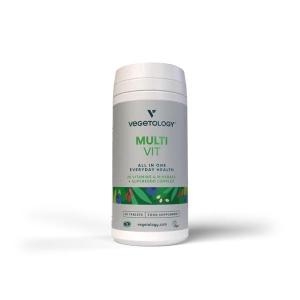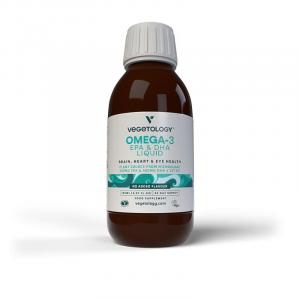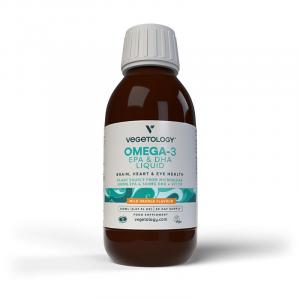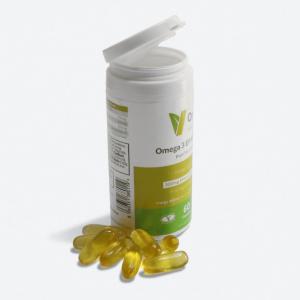
How to Recognize Omega-3 Overdose and What to Do Next

Omega-3 Fatty Acids - When Is Too Much of a Good Thing Harmful?
Omega-3 fatty acids are often referred to as "miracle fats" that support the health of the heart, brain, and eyes. They are an integral part of a healthy diet, and many people incorporate them into their meals through fish oil, flaxseeds, or dietary supplements. However, in recent years, the question has increasingly arisen: can you overdose on them?
Regular consumption of omega-3 is associated with a variety of benefits—from reducing triglyceride levels to alleviating inflammatory processes in the body. It may be surprising, then, to learn that excessive intake of these beneficial fats can also have negative effects. Overdosing on omega-3, though rare, is not impossible. The symptoms are not always dramatic, but long-term overuse can lead to complications that should certainly not be underestimated.
What Are Omega-3s Used For and Why Are They Important?
Omega-3 fatty acids are essential fats that the human body cannot produce on its own. Therefore, we must obtain them from our diet. The most well-known forms are EPA (eicosapentaenoic acid) and DHA (docosahexaenoic acid), which are primarily found in fatty fish. The third form is ALA (alpha-linolenic acid), which can be found in flaxseeds or chia seeds.
These fats play a crucial role in many bodily functions—from brain development in children to regulating inflammatory responses and cardiovascular health in adults. In older populations, they may help slow cognitive decline.
Given that modern diets are often low in omega-3, many people turn to dietary supplements. This opens the door to the question: is it possible to overdose on omega-3 fatty acids?
What Happens When You Overdo Omega-3?
At first glance, it might seem that something as beneficial as omega-3 could not cause harm. However, just like vitamins or minerals, high doses can do more harm than good. According to the European Food Safety Authority (EFSA), a daily intake of up to 5 grams of EPA and DHA is considered safe, but higher doses should be consulted with a doctor.
The most common symptoms of excessive omega-3 intake include:
- Bleeding – Omega-3s have anticoagulant effects, meaning they reduce blood clotting. In higher doses, they can increase the risk of bleeding, whether it's nosebleeds, prolonged bleeding from injuries, or even internal bleeding.
- Digestive Disorders – High doses of supplements can cause nausea, diarrhea, bloating, or a fishy aftertaste in the mouth.
- Low Blood Pressure – People taking blood pressure-lowering medications should be cautious, as omega-3s can enhance the effects of these medications.
- Interaction with Medications – For example, with warfarin or other anticoagulants. Combining them with high doses of omega-3 may be risky.
An interesting case is that of a young athlete who decided to replace traditional fatty fish solely with fish oil supplements. He consumed over 6 grams of EPA and DHA daily, believing it would support muscle recovery. After a few weeks, however, he began experiencing severe abdominal pain and frequent bruising with no apparent cause. When he visited a doctor, it was discovered that he had significantly reduced blood clotting. After discontinuing the supplements, his condition gradually normalized.
How Much Omega-3 Is Just Right?
The recommended daily intake varies by age, gender, and health status. Generally, it is stated that for an adult, an optimal daily dose of EPA and DHA combined is around 250–500 mg. For people at higher risk of heart disease, a higher dose may be recommended, but even that should be consulted with a specialist.
It is best to obtain omega-3s primarily from natural sources, not just supplements. Fatty fish like salmon, mackerel, sardines, or herring are excellent sources, as are plant-based options like flax and chia seeds, walnuts, or algae—especially appreciated by vegans and vegetarians.
A natural variety in the diet is much more comprehensible to the body than high doses of isolated substances.
How to Recognize Overconsumption of Omega-3?
Omega-3 overdose does not manifest overnight. It's more of a gradual process, where a person may not notice anything for a long time. The first warning signs may be subtle—such as more frequent bruising, nosebleeds, or digestive issues.
Excessive use often concerns people who combine several dietary supplements at once—for example, fish oil, a multivitamin with omega-3, and even a fatty acid blend. Supplement to supplement, and suddenly the sum of several grams per day is at hand.
"Anyone who regularly consumes more than 2 grams of EPA and DHA per day in supplement form should be under medical supervision," warns the American Heart Association. This recommendation is well-founded—there are cases where increased doses of omega-3 contributed to side effects or interfered with the efficacy of medications.
Try our natural products
Why Is It Good to Be Cautious?
The answer to the question "can you overdose on omega-3?" is therefore: yes, it is possible. While it doesn't happen often, it's important to realize that even natural substances can be risky in high doses. Omega-3 overdose doesn't occur overnight but with long-term overuse—especially with uncontrolled use of supplements.
Particularly vulnerable groups, such as pregnant women, people on blood-thinning medications, or those with clotting disorders, should be especially cautious. In children and the elderly, dosing should be monitored even more closely.
The greatest danger doesn't necessarily lie in an acute failure but in possible long-term hidden effects. This can undermine overall health and, in some cases, mask existing problems. Yet, it's such a simple thing—following recommended dosages and choosing quality natural sources over synthetic supplements.
A rhetorical question to conclude? If omega-3 is truly a "miracle fat," isn't it better to treat it with respect, just like any other potent substance?





